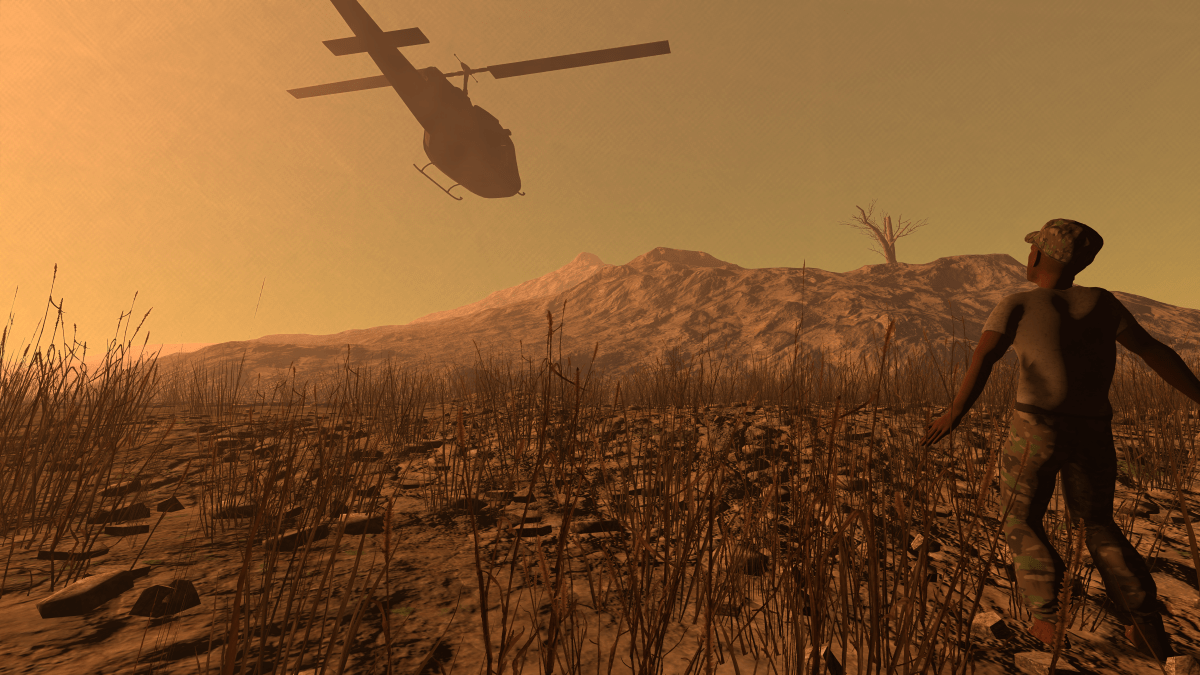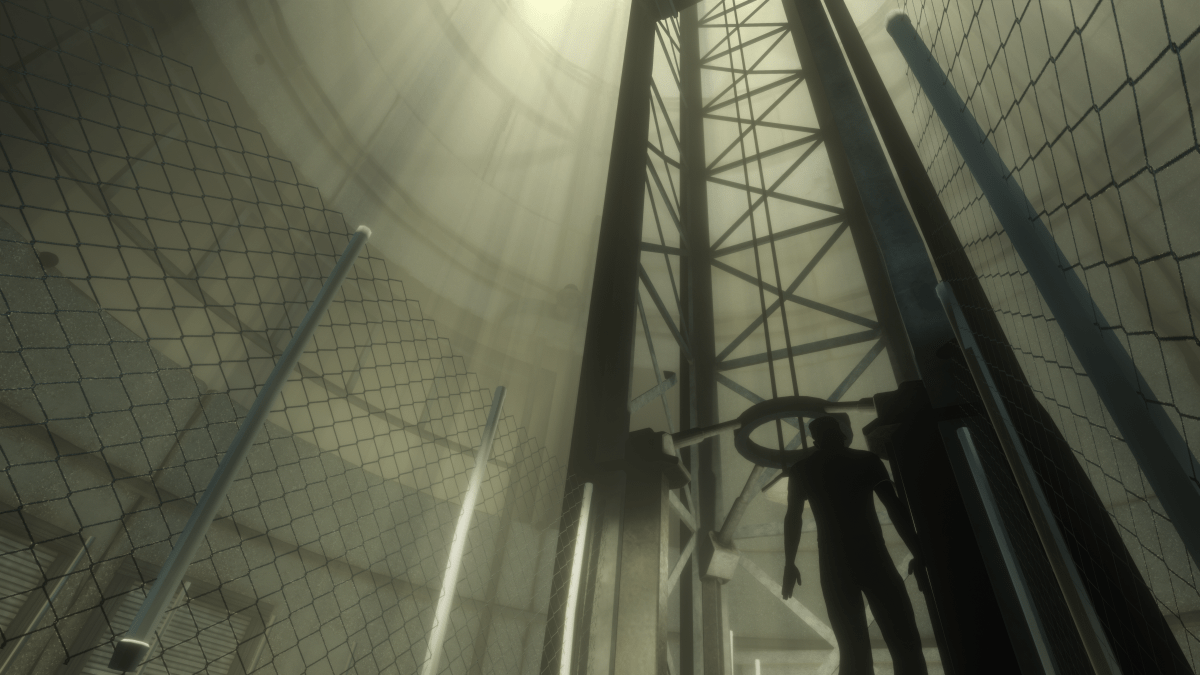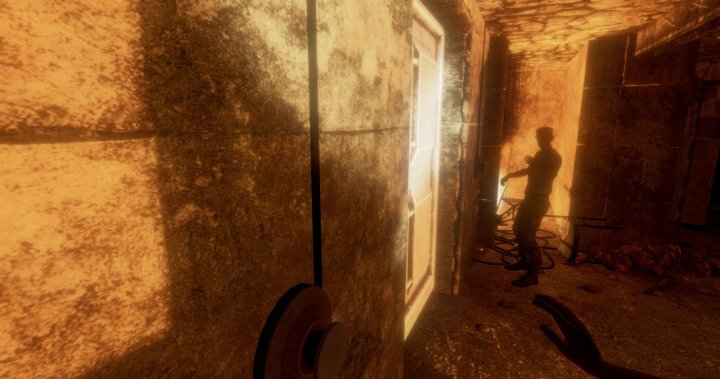Most of us are fortunate enough to have never lived in a war zone or experienced the horrors of combat. It’s one thing to imagine what it’s like, but it’s quite another to actually live it.
Toronto filmmaker and director Ann Shin wants to bring that visceral experience to the average person — not to traumatize or scare them, but to open their eyes to the realities of war.
Shin and Fathom Media’s latest VR experience, called Eye of the Beholder — inspired by Shin’s 2016 Oscar-shortlisted documentary short My Enemy, My Brother — immerses the player in an intense, dramatic 20-minute journey. In the desktop or VR mode, participants encounter other soldiers that may be a friend or foe.
Eye of the Beholder challenges players to choose to combat or collaborate with others, which ultimately determines who gets out alive, and aims to show participants how we prejudge others, and the consequences of those assumptions.

Toronto director and filmmaker Ann Shin.
Fathom Media
Global News spoke with Shin about the innovative project, what you can expect from the game and what she hopes to achieve with it.
Global News: Tell me a little bit more about My Enemy, My Brother. How did this Eye of the Beholder/VR experience idea come to you?
I was filming a documentary about two war vets, Najah and Zahed, who were enemies during the Iran-Iraq War. Zahed risked his own life to save Najah, and the two became blood brothers from that moment on. They both live in Canada now and are friends to this day. As I filmed their story, I was moved and inspired by Zahed’s brave decision on the battlefield. I wondered whether I would have done the same. Would I have recognized the common humanity I shared with an enemy soldier? Would I have trusted and helped him, or would I have shot him?

A scene from ‘Eye of the Beholder.’.
Fathom Media
It’s a dramatic question, but it’s become increasingly relevant as our world becomes more and more polarized. We face this question every day, albeit in less dramatic terms, when we meet others on the streets or in the schoolyards. We make snap decisions whether to trust the other or to be suspicious of them. I wanted to create a VR experience that would have players confront that question, and hopefully recognize how preconceptions colour the way we interact with others.
What happens in the VR experience?
You wake up in a cell in a bunker, with explosions and sounds of battle in the distance. You understand you’re in a conflict zone, but you’re not sure what the war is about. You try to escape this bunker, which is an elaborate underground fortification with different floors, rooms, elevator shafts. You chance upon soldiers from different forces who either ask for, or offer to help; you have to decide whether to combat or collaborate with the others. Your choices determine whether you get out alive, and also impact the lives of others you meet along the way.
What effect do you think the VR experience will have on people who try it?
I think people will be at first enthralled and engaged by it. It might seem like a war game, but really it’s a game that subverts the first-person shooter genre. At the end of the experience, I hope there will be an “aha moment” where they see their actions in a different light. Also, at the end of the experience, we mention the VR experience is based on a true story, and play the trailer for the film about Zahed and Najah — My Enemy, My Brother.
Will it increase empathy, compassion and understanding, do you think?
I hope it will make people stop and reconsider any snap judgements they make about strangers they encounter – whether it’s in a conflict zone, or in an alley, or at the grocery store. Why might we be open or trusting of someone, and be suspicious of another? What are the underlying biases and preconceptions we have when we meet someone? This VR experience creates a space for people to sit with these thoughts, and hopefully become more compassionate and open.
Your previous doc, Defector, similarly brought the viewer into the journey. Is this a conscious move on your part when making movies? (Interestingly, there could be a Defector VR experience as well!)
So funny, I never thought about it, but I’m always driven to take people inside an experience, whether it’s in my films or in my writing. When I’m moved by a story, I want to tell it in such a way that moves people deeply and to do that, you have to take them to a place of deep empathy. It’s not just a matter of empathy (that word is used a lot more than it is actually felt, or acted upon!) it’s also about being transported by the story, and being brought to a place where you realize something new about yourself or the world.

A scene from ‘Eye of the Beholder.’.
Fathom Media
Is this something kids can do? Or is it adults-only?
People of all ages can play this game. It’s a narrative-driven experience, so there is a story that unfolds, and the interactive decision points are fairly straightforward. The only hard part is making the moral decisions!
Video games are often vilified, but here you seem to have found a positive use. Is there “good” in gaming?
That’s a great question. I think yes, there is definitely “good” in gaming, but not all games with a moral message are good games. Let’s face it, video games are first and foremost played for entertainment. But there are a bunch of artists and game designers who have developed games meant for “good.” There’s actually a non-profit group and a festival called Games for Change. So there’s a lot of us out there using video games or VR as our artistic medium for changing people’s understanding of our roles in humanity.
—
The virtual reality experience, ‘Eye of the Beholder,’ will be on Steam as of December 1, and the documentary ‘My Enemy, My Brother’ premieres on Sundance Now on December 21.
© 2020 Global News, a division of Corus Entertainment Inc.


